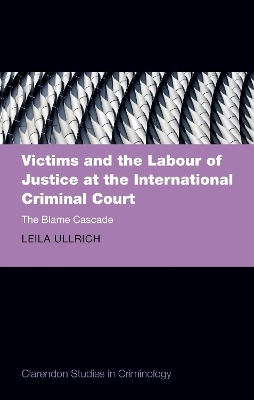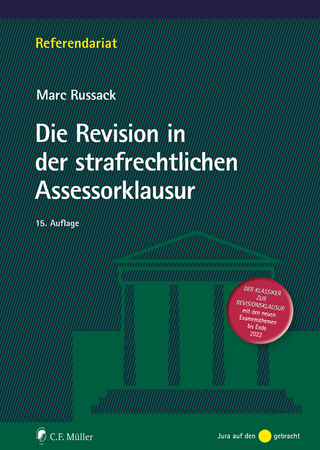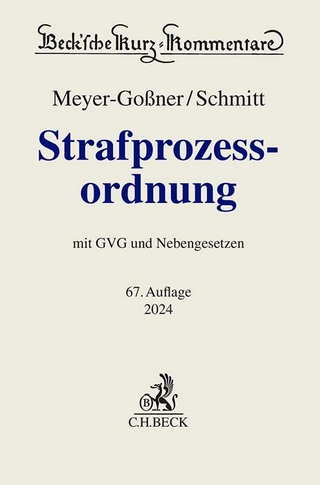
Victims and the Labour of Justice at the International Criminal Court
Oxford University Press (Verlag)
978-0-19-887025-8 (ISBN)
Victim participation at the ICC has routinely been viewed as an empty promise of justice or mere spectacle for audiences in the Global North, providing little benefit for victims. Why, then, do people in Kenya and Uganda engage in justice processes that offer so little, so late? How and why do they become the court's victims and intermediaries, and what impact do these labels have on them?
Victims and the Labour of Justice at the International Criminal Court offers a response to these poignant questions, demonstrating that the notion of 'justice for victims' is not merely symbolic, expressive, or instrumental. On the contrary — the book argues — the ICC's methods of victim engagement are productive, reproducing the Court as a relevant institution and transforming victims in the Global South into highly gendered and racialized labouring subjects. Challenging the Court's interplay with global capitalist relationships, the book makes visible the hidden labour of justice, and how it lures, disciplines, and blames both victims and victims' advocates.
Drawing on critical theory, criminological analysis, and multi-sited ethnographic fieldwork in The Hague, Kenya, and Uganda, Victims and the Labour of Justice at the International Criminal Court illuminates how the drive to include victims as participants in international criminal justice proceedings also creates and disciplines them as blameworthy capitalist subjects. Yet, as victim workers learn to 'stop crying', 'be peaceful', 'get married', 'work hard', and 'repay debt', they also begin to challenge the terms of global justice.
Leila Ullrich is an Associate Professor of Criminology at the University of Oxford. She works at the crossroads of international criminal justice, transitional justice, victimology, and border criminology. She is particularly interested in how global criminal justice institutions create gendered and racialized subjects, and how these subjects (victims, refugees, and racialized communities) engage with and resist these processes. She approaches these questions using feminist, decolonial, and critical political economy theories while also developing new bottom-up research methods such as qualitative WhatsApp surveying. Leila was previously a Lecturer in Law at Queen Mary University and a British Academy Postdoctoral Fellow at Oxford.
1: Introduction
2: What Is Justice and Does It Matter? The Rome Statute and Its Disciples
3: Creating the Victim: From Innocent Victims to Indebted Subjects
4: Translators, Compradors, or Ideological Labourers? The Role of the ICC's Intermediaries
5: Reparations, Abolitionist Imaginaries, and Self-transforming Victims: Transformative Justice at the ICC
6: Money and Land: Resistance in Times of Capitalist Complementarity
7: Conclusion
| Erscheinungsdatum | 23.08.2024 |
|---|---|
| Reihe/Serie | Clarendon Studies in Criminology |
| Verlagsort | Oxford |
| Sprache | englisch |
| Maße | 145 x 223 mm |
| Gewicht | 602 g |
| Themenwelt | Recht / Steuern ► EU / Internationales Recht |
| Recht / Steuern ► Strafrecht ► Strafverfahrensrecht | |
| ISBN-10 | 0-19-887025-6 / 0198870256 |
| ISBN-13 | 978-0-19-887025-8 / 9780198870258 |
| Zustand | Neuware |
| Haben Sie eine Frage zum Produkt? |
aus dem Bereich


